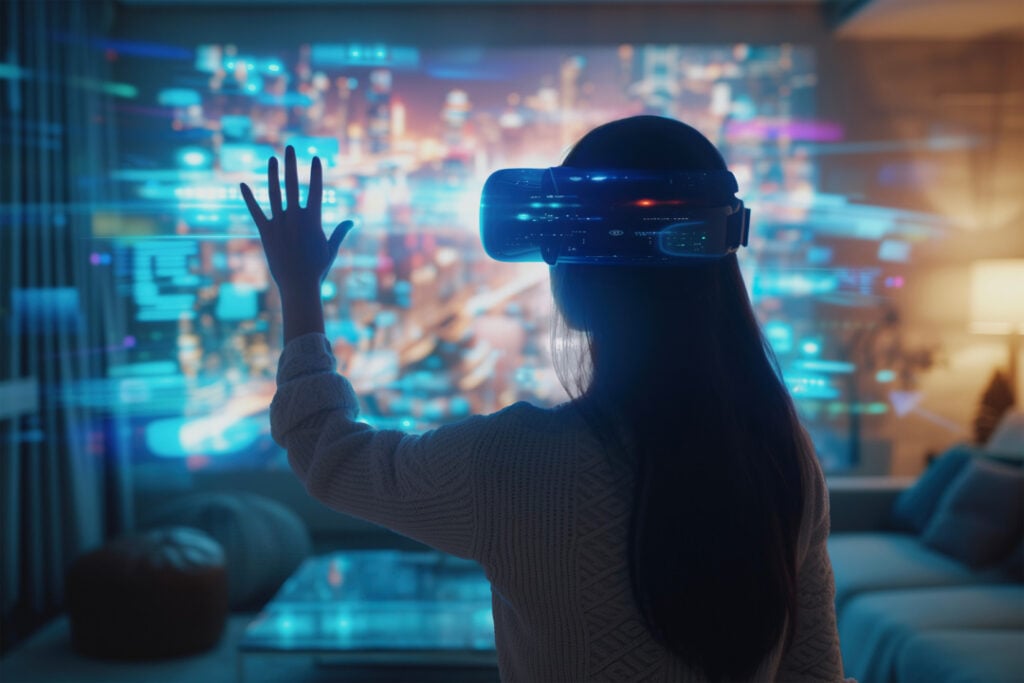Fandom has always been about connection — between fans and their favorite stories, characters, or sports teams. Yet as technology advances, that connection is evolving from passive consumption to immersive participation. The line between audience and experience is fading, and nowhere is this transformation more visible than in the rise of virtual reality (VR) and modern app development. Together, these technologies are reshaping how fans engage with entertainment, sports, and communities worldwide.
Immersion as the New Engagement
Virtual reality has changed the meaning of engagement. In the past, being a fan meant attending live events, collecting memorabilia, or joining online forums. Now, VR allows users to enter the world they love. Whether stepping onto the court alongside their favorite basketball player, performing on a virtual stage with a beloved band, or exploring a movie set in 3D — VR has turned imagination into interaction.
For developers, this shift has created an entirely new market for fandom-focused apps. These applications blend gaming engines, social interaction, and live digital events to offer experiences that are both deeply personal and globally connected. Fans no longer just watch; they participate.
The Role of Advanced App Development
Building immersive fan experiences requires more than flashy visuals. Developers need to combine powerful backend systems with seamless frontend design to handle real-time data, personalization, and user security. This is where integration with advanced data frameworks becomes critical — especially in industries such as healthcare, where digital experiences must also manage sensitive information and interoperability.
For instance, modern developers often rely on FHIR services (Fast Healthcare Interoperability Resources) to structure, manage, and share complex data efficiently. While FHIR is rooted in healthcare, its principles — structured data, interoperability, and security — are increasingly being applied in other fields, including sports and fan engagement platforms. The same mechanisms that securely connect patient data can also ensure seamless, secure connections between users, teams, and events across multiple digital ecosystems.
Virtual Reality Meets Artificial Intelligence
AI is another key component in this evolution. Artificial intelligence enables adaptive environments that respond to user behavior, emotions, and preferences. Imagine a VR concert that tailors the lighting, stage visuals, or song list to your reactions — or a sports simulation that adjusts its difficulty based on how well you’re performing.
For app developers, this means building intelligent systems that can interpret user data and deliver responsive experiences in real time. Machine learning, combined with VR technology, is giving rise to what many call “emotional computing” — a new dimension of interactive entertainment where every user’s experience is unique.
Fandom in the Metaverse
The concept of the metaverse — a persistent, shared digital space — has amplified what fandom can be. Instead of fragmented social media platforms or individual fan pages, the metaverse allows fans to gather, interact, and create inside immersive virtual worlds.
Imagine entering a virtual museum dedicated to your favorite show, where every exhibit was designed by other fans; or watching a sports match with friends across the world, where your avatars react to every goal in real time. These spaces turn passive fans into active creators, building communities that thrive on shared creativity.
For app developers, this opens new opportunities to design experiences that merge commerce, community, and culture. Virtual merchandise, NFT-based collectibles, and AR-driven rewards are quickly becoming integral to fandom ecosystems.
Real-World Examples: From Sports to Entertainment
Several industries are already embracing this transformation. Major sports leagues use VR to enhance fan interaction — from virtual locker room tours to immersive replay experiences that let fans “be” the referee. Music labels and game developers are launching interactive concerts and cinematic VR experiences where audiences can shape the narrative.
Film studios are experimenting with VR storytelling, allowing viewers to explore alternate perspectives within a single scene. For developers, these trends highlight the need for cross-platform flexibility — ensuring that VR apps perform equally well on headsets, mobile devices, and desktops.
Challenges on the Path Ahead
While the potential of VR and fandom apps is enormous, developers face challenges such as hardware accessibility, bandwidth limitations, and maintaining privacy in data-driven ecosystems. The technology is evolving quickly, but user adoption depends on affordability, user-friendly interfaces, and seamless connectivity.
Moreover, game design is critical. As VR experiences become more realistic, developers must ensure psychological well-being and avoid overstimulation or addiction-like behaviors. Balancing immersion with responsibility will define the next generation of digital fan experiences.
The Future: Where Passion Meets Technology
The intersection of VR and app development represents a new frontier for fandom — one that is immersive, intelligent, and inclusive. Fans are no longer spectators but participants in ever-expanding digital universes.
Technologies like AI, data interoperability, and frameworks inspired by FHIR services ensure these ecosystems are not only interactive but also scalable and secure. In essence, they allow fan experiences to be built with the same precision and reliability as mission-critical industries.
As VR continues to blur the boundaries between reality and imagination, one thing becomes clear: the future of fandom will be defined by those who can combine emotion with innovation — transforming passion into fully immersive digital worlds.






